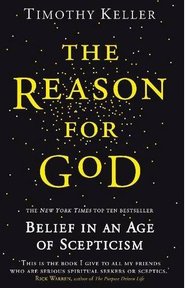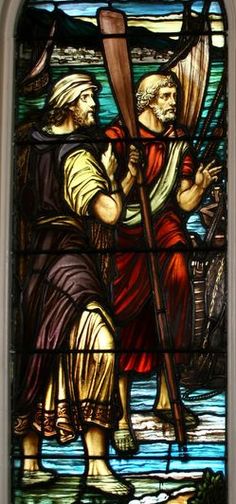 "Paul" By Kenneth Wyatt *
"Paul" By Kenneth Wyatt * One such job description occurs in Paul’s letter to Titus: “Paul, a servant of God and an apostle of Jesus Christ to further the faith of God’s elect and their knowledge of the truth that leads to godliness—in the hope of eternal life” (Titus 1:1-2).
This description revolves around Paul’s famous triad of “faith, hope and love,” although the fact may not be obvious without thinking about it. He mentions faith and hope directly, and the third quality – love – is lightly veiled in the form of “godliness” which (although it can be more than love alone), the Bible frequently equates with love. Because God is love (1 John 4:8) godliness obviously is also the way of love; and we see the equation made clear, for example, in 2 Peter 1:3-7 where godliness is positioned with brotherly affection and love.
But Paul does not mention his great triad of spiritual qualities just to include them in the letter – he could have done that later. Instead, he stresses them in the statement of his job description as being at the heart and core of his work. Reading the whole of Titus 1:1-2 we see how Paul envisioned this. The apostle clearly saw a big part of his job as “furthering” or growing and expanding the faith of those God had called, as well as their “knowledge of the truth that leads to godliness” and their “hope of eternal life.”
Most of us think of “faith, hope and love” in the context of I Corinthians 13, where Paul shows we should be developing these things in ourselves. So it’s easy to read over the same qualities in the epistle to Titus without grasping their significance for Paul – as key elements in the job he was called to do. We may even study, meditate and pray about these very qualities as things we should strive to develop in ourselves, but how often do we think of them as goals for the lives of others?
Remembering Paul’s self-defined job description, we might think more about how we too can help grow these qualities in others. It’s easy to see the outgoing aspect of our calling as essentially one of helping others to initial belief in Christ – but then it tends to stop. Perhaps we think of continuation in terms of ongoing “encouragement” of our brothers and sisters, but Paul shows us that he had specific goals in mind in the work he did. Faith, hope and love/godliness lie at the heart of what Paul had to say about living God’s way of life. Titus 1:1-2 shows us that Paul also saw that teaching and developing these qualities in others was an important part of doing God’s work.
How do we apply this principle to help others grow these qualities? It's a big question, but if we want to imitate Paul as he tells us to do (1 Corinthians 4:16), as he himself imitated Christ (1 Corinthians 11:1), it's a question we should all think on.
* Reproduced with the kind permission of the artist, Kenneth Wyatt (kennethwyatt.com).







 RSS Feed
RSS Feed
